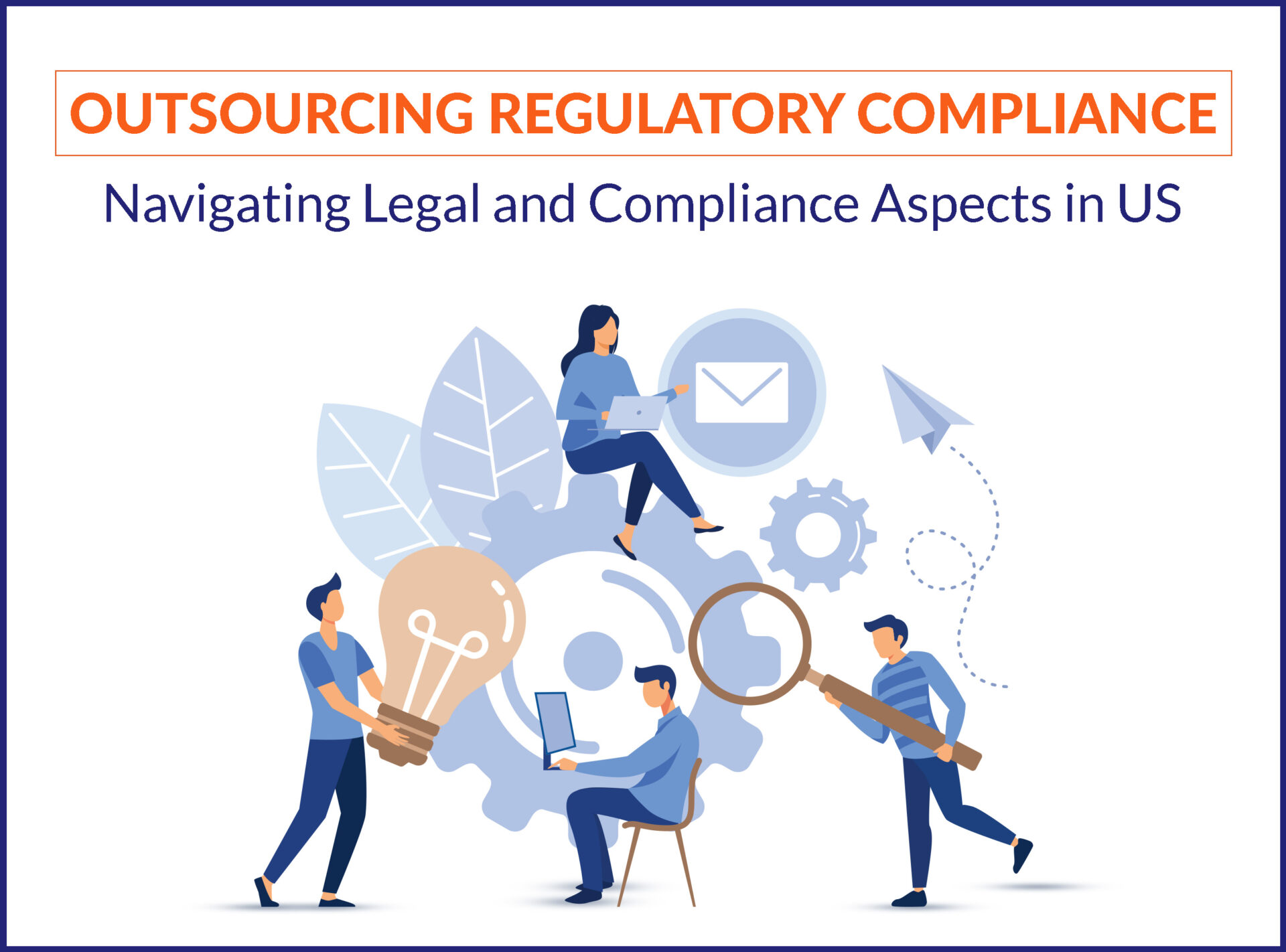This short article is a submission by Managed Services Partners. Managed Services Partners is an outsourcing company with over six years of experience assisting services enhance operations and drive development.
Embarking on the contracting out journey is an undertaking that numerous companies carry out to improve effectiveness, decrease expenses, and take advantage of specialized talent.
However, together with these potential benefits come a host of legal and compliance intricacies that should be carefully navigated to ensure the success and sustainability of contracting out efforts.
This comprehensive guide will explore key legal and compliance considerations, with a focus on data privacy laws, non-disclosure agreements (NDAs), non-compete provisions, and the vital role of adaptability in today's dynamic business environment.
The contracting out landscape
Outsourcing is more than a technique for offloading non-core jobs; it is a transformative method that can boost a business's versatility and competitiveness.
Whether it's IT services, customer support, making procedures, or personnels, outsourcing can provide a significant edge. Companies that successfully contract out can concentrate on core business operations, drive development, and access leading talent without the overhead costs of full-time employment.
However, this journey is not without its legal and compliance challenges. Companies must be conscious of the intricacies surrounding the transfer and management of data, the defense of intellectual property (IP), and the upkeep of regulative compliance.
Given the worldwide nature of outsourcing, businesses need to also think about cross-border legal implications, which might vary considerably depending on the nation where the outsourcing company runs.
Understanding these elements is vital in ensuring that outsourcing partnerships line up with a company's strategic goals while reducing possible legal threats.
In most cases, services that neglect legal and compliance considerations deal with costly disputes, loss of sensitive information, or reputational damage that can take years to recuperate from.
Importance of legal factors to consider
Outsourcing naturally includes legal considerations that are vital to safeguarding a company's interests. At the leading edge is the requirement to secure sensitive information. Companies should understand and stick to data personal privacy laws that govern the jurisdictions in which they operate.
This is particularly important as data breaches can lead to severe monetary penalties and reputational damage.
Furthermore, copyright rights need to be clearly specified in contracting out arrangements to avoid unapproved use or misappropriation of proprietary assets. If these rights are not properly developed, a company may lose control over vital innovations or personal business processes.
For businesses running in extremely managed industries such as health care, finance, or legal services, compliance requirements are even more rigid.
Adhering to guidelines such as the General Data Protection Regulation (GDPR) in Europe or the Medical Insurance Portability and Accountability Act (HIPAA) in the United States is vital to avoiding legal complications.
Non-Disclosure Agreements (NDAs) and non-compete clauses
When outsourcing, business often share proprietary info with external company.
To safeguard this important information, NDAs are utilized. These arrangements are developed to avoid the unapproved dissemination of secret information, consequently securing the company's competitive benefit.

NDAs ought to be detailed and lawfully binding, clearly outlining what constitutes private information and the commitments of both celebrations in managing sensitive data. Businesses need to likewise ensure that their NDAs include arrangements for legal option in case of breaches.
Similarly, non-compete stipulations can be included to prevent company from exploiting sensitive understanding acquired during the outsourcing partnership to benefit a competitor. This is specifically crucial when contracting out freelancers or firms that might have multiple customers in the same market.
However, the enforceability of non-compete clauses can vary substantially depending upon the jurisdiction. Some regions have rigorous policies restricting the scope and period of such provisions.
Therefore, it's essential for business to consult legal specialists with experience in the appropriate legal frameworks to draft reliable arrangements.
Contracts: Setting the structure
Contracts act as the blueprint for the outsourcing partnership, defining functions, responsibilities, deliverables, and timelines. They also lay out the legal and compliance expectations for both celebrations.
A well-structured agreement ought to attend to a number of crucial elements:
Scope of work: Clear and comprehensive descriptions of the services to be supplied, including quality standards and efficiency metrics.
Data security: Specific stipulations associated with information defense, information transfer treatments, and breach notification procedures to ensure adherence to personal privacy laws.
Copyright rights: Provisions that develop ownership of IP developed throughout the partnership, and terms that safeguard pre-existing IP.
Termination clauses: Terms that resolve the possible end of the outsourcing relationship, including notification periods and conditions under which termination can happen without charge.
Additionally, companies ought to consider executing service-level arrangements (SLAs) to guarantee responsibility and performance tracking. SLAs define quantifiable standards that the outsourcing supplier should satisfy, supplying services with recourse if expectations are not fulfilled.
Engaging with service suppliers
Consulting with prospective company during the early phases of the outsourcing journey is a strategic move. This engagement permits business to gauge the service provider's ability to fulfill legal and compliance requirements.
Thorough vetting procedures, such as requesting recommendations, reviewing previous jobs, and evaluating compliance accreditations, can offer valuable insights into the supplier's dependability and adherence to market standards.
Businesses should also examine the monetary stability of possible outsourcing partners.

A service provider that faces financial difficulties may not be able to maintain operations long-term, posing a danger to continuous jobs. Conducting due diligence beforehand can prevent future disruptions.
The role of adaptability in legal and compliance techniques
Adaptability is a crucial component of successful outsourcing, particularly when it comes to browsing evolving legal landscapes. Regulations and market conditions can alter quickly, making it imperative for companies to stay nimble.
Building flexibility into agreements and developing processes for ongoing compliance monitoring can help organizations adjust to new legal requirements and maintain a competitive edge.
For circumstances, if a company is contracting out client support operations to multiple countries, they must guarantee compliance with various national laws concerning customer defense and information personal privacy.
Regularly upgrading policies and contracts in action to legislative changes can prevent legal pitfalls.
Real-world factors to consider and best practices
To guarantee legal and compliance success in outsourcing, organizations must adopt the following finest practices:
Regular audits and evaluations
Conduct periodic audits and assessments to ensure that service companies remain certified with legal and regulative requirements. This proactive approach can assist identify prospective spaces before they escalate into considerable issues.
Training and awareness
Educate staff members and outsourced groups on data security practices and legal responsibilities. This makes sure that everyone involved in the outsourcing journey understands the value of compliance and the role they play in securing information.
Collaboration and interaction
Foster a collective relationship with service suppliers. Open lines of communication can help address compliance concerns immediately and facilitate joint analytical efforts.
Crisis management planning

Have contingency strategies in place in case of security breaches, agreement disagreements, or provider failures. A well-structured crisis management plan makes sure that companies can quickly react to difficulties without significant interruptions.
Legal compliance for outsourcing success
Understanding the legal and compliance elements of outsourcing is important for companies seeking to utilize external capabilities while protecting their interests. By concentrating on crucial locations such as data privacy, NDAs, non-compete clauses, intellectual residential or commercial property rights, and versatility, business can effectively browse the outsourcing landscape.
Successful outsourcing hinges on a collective method in between the business and its company. Building trust and maintaining transparent communication can lead to efficient analytical and a shared dedication to compliance.








